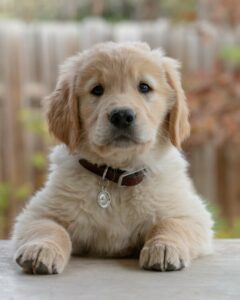Menu
The Benefits of a Puppy Board and Train
 In this comprehensive guide, I will explore the benefits of enrolling your puppy in a board and train program and offer tips for various stages of puppy training.
In this comprehensive guide, I will explore the benefits of enrolling your puppy in a board and train program and offer tips for various stages of puppy training.
As exciting as it is when you bring a new puppy home, it’s equally as overwhelming. Puppies are a lot of work and incredibly energetic! This means that most new puppy owners have both joys and challenges in store for them. Training a puppy as early as possible will help you to ensure that you raise a balanced dog.
I recommend that people start training their 8 week old puppies as soon as they come home. When people ask me when to start training a puppy, I tell them immediately.
If you would like help with professional puppy training, a puppy board and train may be a good option. A typical age to send your puppy away for a puppy board and train is when you have a 4 month old puppy or a 16 week old puppy. This is a great time to send them away for training as they will be old enough to really excel in a puppy training program.
In my professional opinion, its better to send your puppy away for a board and train when they are a little older. This is because you can teach a lot of the basic puppy obedience yourself. This saves you money. In addition, if you send your 4 month old puppy away for a puppy board and train, they will retain more knowledge from the program. It’s a better value for you overall.
I have seen on many occasions, a board and train puppy excel in their training and with their impulse control.
How to Train Puppies
All puppies need 100% positive reinforcement training with food reward and praise. You can use their daily meals to train them. With each week that passes your puppy will gain more knowledge and the training will go easier. They will also be maturing week by week which comes as a relief to overwhelmed owners.
 I remember watching my last pitbull puppy Goji grow up. It was so cool to see her improve each week as she learned and continued to grow. Training your puppy daily helps you build a relationship. It also helps to form the foundation for a well behaved dog that knows commands.
I remember watching my last pitbull puppy Goji grow up. It was so cool to see her improve each week as she learned and continued to grow. Training your puppy daily helps you build a relationship. It also helps to form the foundation for a well behaved dog that knows commands.
At What Age Should I Start Training My Puppy?
You can begin as early as 8 weeks old. At this age, its all very basic. You are teaching commands such as:
- Their name
- Sit
- Come
Tips For 2 Month Old Puppies
Puppy Crates or Playpens
The most important thing to get figured out will be the puppy’s schedule and training. Most people let their puppies run all over the house. However, I do not recommend that. It’s best to contain a young puppy and give them a homebase.
Starting with a playpen instead of a crate can be really helpful. That way, the playpen becomes their homebase for a week or two while you start to introduce your puppy to the crate with positive reinforcement. Then, as they get used to it, the crate can be their homebase for naps and sleeping at night. You can put their bedding and toys into their playpen or crate as well.
You may use puppy pee pads at first in the playpen. However, its best to keep taking your puppy outside in the same spot several times a day to go potty. When they do go potty outside give them a treat with praise. This helps to reinforce that they did a good thing.
2 Month Old Puppy Schedule
Puppies get up really early. I find that with a new puppy I am up giving them a potty break and feeding them around 6am. I wear them out a bit and then put them back in their homebase, the playpen.
It’s hard to get good sleep with a brand new puppy. However, if you try to figure out their schedule and stick to it, you should see improvement within a few days.
 Most young puppies do well with 3-4 meals a day. Think of these times as potty breaks or puppy potty training, mini training sessions, and feeding time all in one. You’ll probably be taking your puppy out much more than this for potty breaks too. Always bring your puppy to the same spot outside for their potty breaks.
Most young puppies do well with 3-4 meals a day. Think of these times as potty breaks or puppy potty training, mini training sessions, and feeding time all in one. You’ll probably be taking your puppy out much more than this for potty breaks too. Always bring your puppy to the same spot outside for their potty breaks.
Training a 2 Month Old Puppy
Puppies at this age have zero impulse control and very little focus. However, you can still teach them these basic commands with their food/kibble. You do not need to use training treats as they can be too fattening.
Most vets recommend you do not take your puppy out in public places until 2 weeks after their second round of vaccinations. This is usually around 3 ½ months. This means you would just walk your puppy around your house or in your yard. This is so they do not pick up any viruses from where other dogs have been.
How Much Sleep Should My Puppy Get?
- 2 Month Old Puppies: Need 20 hours of sleep a day
- 3 Month Old Puppies: Need around 18 hours a day
- 4 Month Old Puppies: Need around 16-18 hours a day
This is probably more sleep than you thought, right? Most people do not know that puppies need this much sleep. This is why the “homebase” I referred to above is so important. Most people are raising chronically overstimulated puppies. This leads to development issues which can lead to behavioral issues as an adult. My other blog on, Puppy Witching Hour, addresses this.
Therefore, you can structure your puppy’s day around their sleep schedule. This is the most important part of this blog. If a puppy needs to sleep 20 hours a day, that means you are only doing stuff with them a total of 4 hours a day. So, you’ll break that 4 hours into lots of little chunks during the day. You may have your puppy out 20 minutes here and there, with naptime always as what you come back to.
Socializing a 2 Month Old Puppy
You may not be able to walk your 2 month old puppy around due to them not being fully vaccinated. However, you can still take them places to socialize them. Here are some 2 month old puppy socialization tips:
- Invite your friends over to meet the puppy
- Take your playpen to the park and let them dog, car and people watch
- Take your puppy for car rides
- Hold your puppy and take them into stores and café’s
*Do not ever let a strange adult dog greet your puppy while you are out. Many adult dogs will seem chill with puppies but then snap or growl at them “out of nowhere.” It’s best to find other puppy owners for socialization for play dates. Click here for more tips on how to safely socialize your pup before they’re vaccinated.
What Kind of Harness or Collar Should I Use?
I recommend using a harness on a puppy that is 2-3 months. However, keep in mind that all harnesses, collars and leashes will be foreign to a 2 month old puppy. It’s best to take it slow with this process and start in the house.
How Long Can I Walk a Puppy?
The rule of thumb is, you can walk a puppy 5 minutes for every month of their age. So if you have a 2 month old puppy, you can walk them for 10 minutes at a time. They will become tired very easily.
How to Potty Train a Puppy in Winter?
Be aware of both extreme heat and cold when considering potty training a puppy. If you live in a cold climate during the winter, you may have to use pee pads or create a spot inside your garage etc. for them to go potty. It’s best if you can find some place to teach them to “go potty” other than in your living room or kitchen with pee pads. That way you can work on the “go potty” command using treats and praise to reinforce the behavior.
After they know what “go potty” means, you can pick an outside area or if there is snow clear a path. You can bundle them up, and only take them to that one spot precisely after meals to “go potty.”
Tips for 12-Week Old Puppy Training
By 12 weeks, your puppy should have a good grasp of basic commands. You can introduce more advanced commands like stay and down. At 3 months old, I was able to start teaching my pitbull puppy the “place command.” Place is a raised dog cot that is helpful for teaching basic dog obedience. In this training drill you use their daily meals for training treats.
16-Week Old Puppy Training
At 16 weeks, your puppy is showing signs of maturity. They have better focus and impulse control so you can start to build in your stay command. You can teach your puppy to heel and walk right by your side. They are also able to go out on walks with you. This is exciting but remember to always remove your puppy from a situation if they look nervous. Be careful about what dogs you introduce them to as you don’t want dogs snapping at them which can be traumatic.
When my pitbull puppy was 4 months old we did “place bouncing” every morning as part of our daily routine. She really loved to work every day and work on her obedience.
Crate Training Schedule for Puppies
Crate training is an essential aspect of puppy board and train programs. It provides your puppy with a safe and comfortable space while helping with housebreaking and preventing destructive behavior. To create an effective crate training schedule, consider the following tips:
- Start Early: Begin crate training as soon as you bring your puppy home. Place the crate in a central, family-oriented area.
- Gradual Introduction: Allow your puppy to explore the crate at their own pace. Make it a positive experience by placing treats, toys, and a comfortable bed inside.
- Mealtime in the Crate: Feed your puppy in the crate to create a positive association.
- Short Intervals: Start with short periods in the crate and gradually increase the duration as your puppy becomes more comfortable.
- Positive Reinforcement: Always use positive reinforcement, like treats and praise, when your puppy enters and exits the crate calmly.

When to Consider a Puppy Board and Train?
I would recommend the age of 4-6 months for a puppy board and train. If you are feeling overwhelmed with puppy training or sticking to a schedule, this may be a good option. In addition, if you are seeing any behavioral issues surface, a puppy board and train may be very helpful.
If you have a more high energy breed puppy, a board and train may be a good option. This is because they will have a solid foundation for basic obedience and impulse control before they become adolescents. In addition, if you have a high energy husky puppy or a German Shepherd puppy, you may want to consider a board and train.
Furthermore, if you really need and desire a well trained dog, why wait to do extensive training? A puppy board and train is like puppy school. It helps to ensure that your dog is balanced right from the start. I have seen on many occasions, a board and train puppy grow into a more balanced dog.
I am a dog trainer in Portland, Oregon. A lot of my clients have not done extensive training with their puppies. They wait until their adult dogs start to exhibit behavioral issues and then find a dog trainer to help them. Often, I am helping my clients to clean up their relationship dynamic. Their dogs have already had months or years of practicing bad behaviors.
Start to Train Your Puppy Early
However, if people would start this process earlier, they would be ahead of the game. It’s important that all puppies and dogs learn your rules as soon as they are in your care. Don’t wait! If you are struggling, research a reputable puppy board and train program near you. In addition, if you are looking for a dog trainer in Portland, Oregon, check out my website. Also, check out my other blog, Why Are Puppies So Hyper?
In conclusion, enrolling your puppy in a board and train program offers numerous benefits. From learning essential commands with positive reinforcement to addressing specific training challenges at different ages, a board and train program can set your puppy on the path to becoming a well-mannered and happy adult dog.
Remember that consistency, patience, and positive reinforcement are key elements in successful puppy training. So, whether you’re starting with an 8-week-old pup or an older dog, the journey of training and bonding with your dog is an incredibly rewarding one. Start training as early as possible and you will see results!
Interested in a Zoom Consultation?

